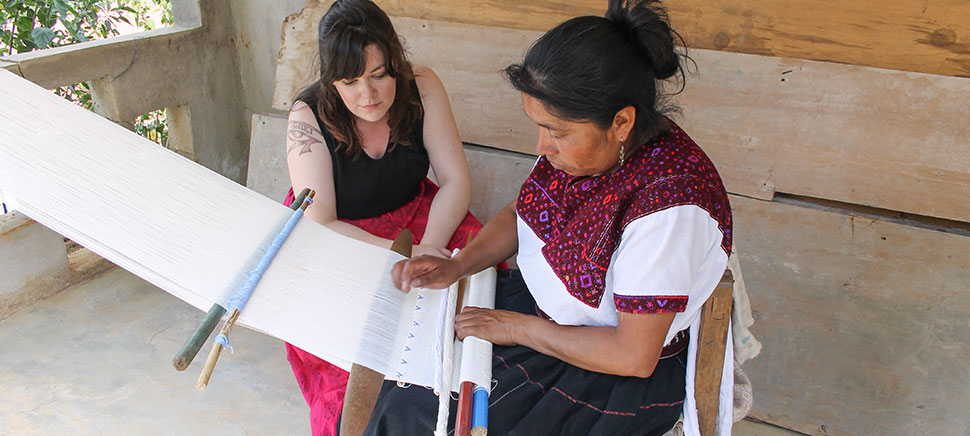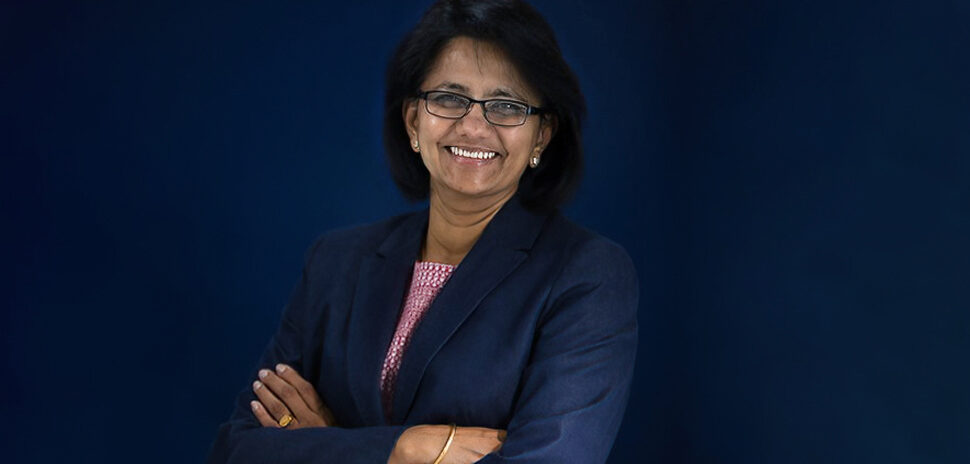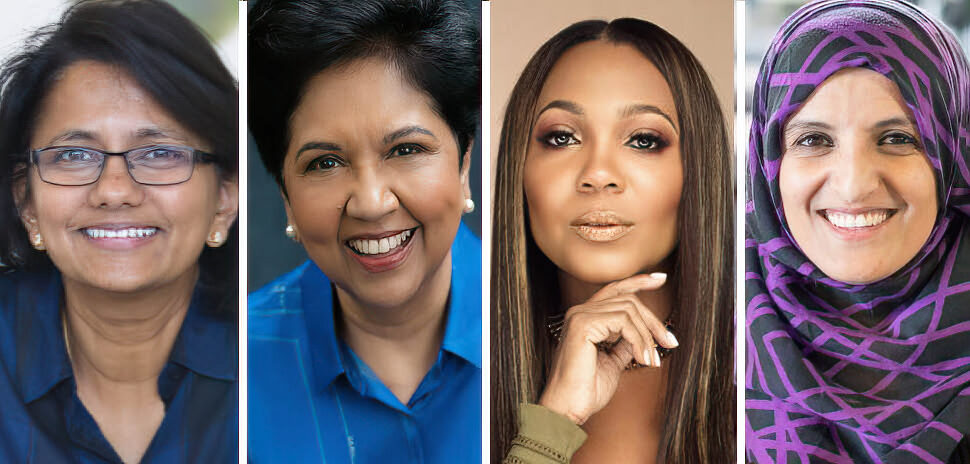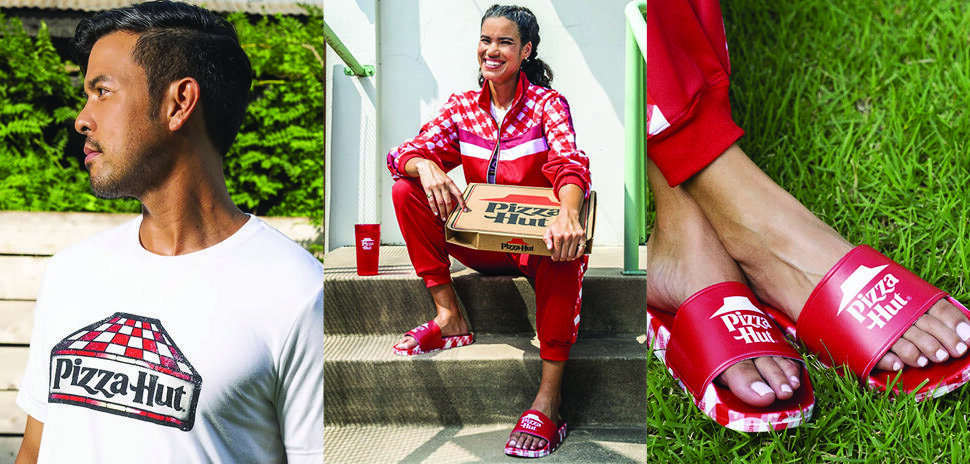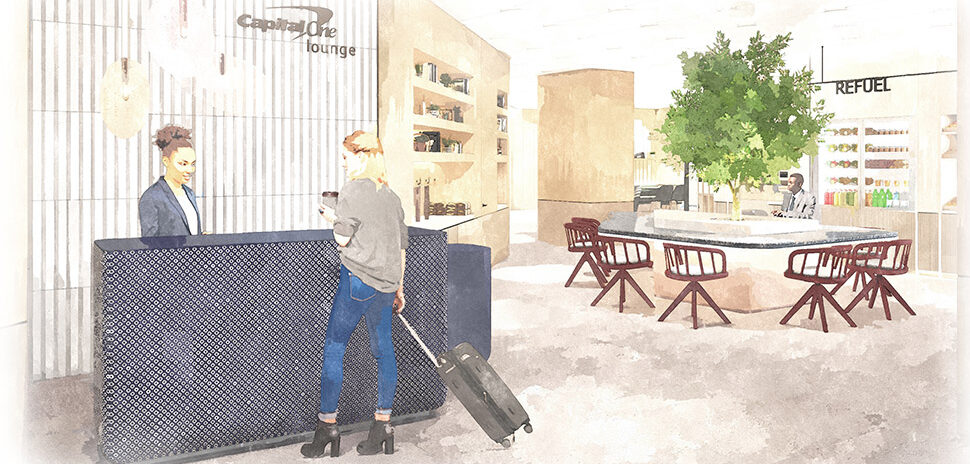ETHICAL FASHION LINE EMPOWERS WOMEN THROUGH CLOTHING
While visiting a remote village in India, Marissa Heyl had her “aha moment.”
“I was watching a woman block print a tablecloth and I envisioned it as a beautiful dress and that was kind of it,” Heyl said.
The experience helped her realize she could meld her passion for human rights with her lifelong dream of becoming a fashion designer.
“I didn’t have to sacrifice one for the other,” she said.
In 2012, she founded Symbology Clothing, an ethical fashion line that employs artisans from around the world to create handmade fabrics, which are crafted into fashion forward garments.
“That financial independence and that sense of agency that they’re able to gain through connecting with other women in a workspace — when a lot of women are relegated to their homes to cook and clean all the time — is really empowering,” Heyl said.
Fast forward four years, and the Raleigh, North Carolina native is now calling Grapevine, Texas home. Her ethical fashion company is introducing menswear and later this year, is adding home decor to the mix. By next year, she hopes to open Symbology’s flagship store.
She took time this week to talk with Dallas Innovates about Symbology’s journey to empowering women artisans, how she’s settling into the Dallas-Fort Worth area, and her company’s future plans.
What inspired you to start Symbology Clothing?
I was shopping [at Ten Thousand Villages in high school], and really just fell in love with these beautiful fabrics, colors, and jewelry pieces that were really reflective of a lot of different cultural traditions — weaving and beadwork from different parts of the world. That really captivated me from a design and style standpoint.
“Fashion is also superficial and I loved this idea of having fashion that actually has more depth to it.”
Marissa Heyl
Then, I started reading some of their posters and other literature about how the fair trade business model actually gives sustained employment to the women and men for making those designs. So I thought, ‘how interesting. My shopping habits could actually be used for something good instead of exploiting people, which is just all too common, especially now with the boom of fast fashion.’ Fashion is also superficial and I loved this idea of having fashion that actually has more depth to it. That was kind of the spark of interest or the seed that was planted in my mind.
I actually studied journalism and anthropology in undergrad. For the premise of my research thesis in anthropology, I thought back to those days of shopping at Ten Thousand Villages and thinking about how our consumer culture could be leveraged for social impact and the greater good. I evaluated different artisan groups in India — some were based in villages and some in slum areas — and interviewed about 50 craftswomen on how fair trade empowers them. That was really the premise and then it was just an incredible journey from there.
I was in a village in a very remote part of India, where they don’t have a written language. So, they use embroidery as a way to mark their cultural identity and record their history, which I thought was fascinating — the role that textiles and these handcrafted goods played not only in the economy, but in their culture and in their identity. There’s so much symbolism behind each motif that’s used and that kind of plays into why I named my company Symbology.
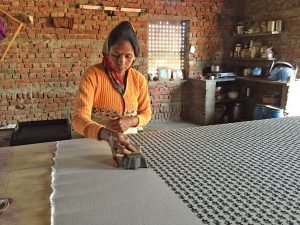
An artisan block prints fabric by hand. [Photo submitted by Symbology Clothing]
I was watching a women block print a tablecloth and I envisioned it as a beautiful dress, and that was kind of it. That was the “aha” moment where I realized that I could combine my passion for human rights — especially women’s empowerment — with fashion design. I didn’t have to sacrifice one for the other.
I really feel like this is what I’m meant to do. In all honesty, [during] the recession in 2009, I lost my job working at a refugee agency in Washington, D.C., and had to move back home with my parents, which was humbling, but it also kind of forced me to introspect and kind of look at this idea that didn’t have a name yet, but was later to be Symbology and kind of really pursue that.
I think one of the great things that came out of the recession was this entrepreneurial ecosystem. I think a lot of people faced that either coming out of college and couldn’t find work or were laid off due to budget cutbacks. But, in a way the silver lining was that there was this great resurgence of local economies and the startup culture, which now everybody wants to be an entrepreneur and frankly not everybody is cut out to do it. It is a ton of work.
You studied journalism and anthropology at University of North Carolina at Chapel Hill, what led you to fashion?
I was sketching dresses as a little kid and was glued to the TV anytime I could find a runway show. It just always fascinated me. I was a little fashionista. I had a blossom hat, which was my signature in first grade.
I really became very interested in culture and travel in high school. I got more involved in human rights and social justice work in college and it was kind of just an amalgamation of all these different interests into one.
What’s interesting as well is some people say, ‘well you studied journalism, what does that have to do with fashion design? Shouldn’t you have studied design?’ But, I think especially in the year 2016, content is so crucial and pivotal to building a brand and that’s something that we are really going to be working on is creating an authentic voice and communicating our story in a very relatable and transparent way. I really think that journalism background has been really instrumental in building that.
Why do you think fashion is a good conduit for social change?
You have the cheerleaders or crusaders who are all about human rights and that is a small part of the population. I think what’s really important, is raising awareness on a wide scale, so that you engage people who are not necessarily interested in reading about genocide in Darfur.
I remember working at Human Rights Watch and documenting all these genocides and terrible situations and it was really depressing on a day to day basis. It was really tough emotionally to grapple with and I was thinking, ‘how do you get people to be on board? To be excited about trying to promote human rights? How do you do that?’
“We’re taking the best elements of fast fashion with the best elements of the fair trade business model.”
Marissa Heyl
GOOD Magazine came out around 2006-2007 and I loved that they really tried to focus on positive change in the world instead focusing on all the negative, sad stories and charity stories. That’s also what I love about Symbology and clothing is that everybody can get excited about a cute dress. Not all of our customers really care that it was handmade or supports this marginalized woman in India — and that’s OK. At the end of the day, I’m creating a beautiful product that’s well made. I want it to sell at a fairly premium price in a beautiful boutique.
I think that’s also how fair trade has changed. We don’t really use the term ‘fair trade.’ We use the term, ‘ethical fashion,’ because I think that’s the new wave.
We’re taking the best elements of fast fashion with the best elements of the fair trade business model. So, we are taking the artisan focus, sustained orders, focus on gender equality, fair wages, environmental sustainability with the design and the trend of fast fashion.
What partnerships have you made in DFW and what kind of impact do you think they will have on Symbology going forward?
I spoke at 1 Million Cups at [The Dallas Entrepreneur Center] and that’s really what connected me with some great entrepreneurs and led me to bring on my first hire, Taylor, and that’s been great to help us really build more capacity. It’s been myself and college interns for three years, so it’s been great [to have] someone else.
We are going to partner with [Akola Project] and Tribe Alive — which are other artisan-focused accessory companies here — in doing a pop-up shop/VIP blogger event.
We are also working on a dinner featuring, really just badass women in the Dallas area. We just want to create really good content too about empowered women focusing on more than just the fashion. That’s one of our new content strategies.
What is your inspiration for the fall/winter line?
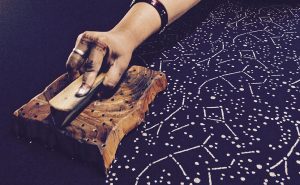
Symbology Clothing’s fall/winter line takes on a celestial theme such as with this constellation print. [Photo submitted by Symbology Clothing]
It’s our Cosmos collection. It’s a celestial theme and motif, so we have a lot of star, constellation, and protective eye prints.
I was looking at creation myths from different cultures and there’s a lot that revolves around the sky and the cosmos, so that was the inspiration behind that. But, then there’s a protective eye in different cultures too that almost plays that similar role of the cosmos — protecting people and all seeing.
What does the future look like for Symbology Clothing?
I would love to have our flagship store open in 2017. We need to find the right location, but I have some ideas in mind.
Akola has their store in the front, their office in the back, and their inventory even further back and I love that idea of having a space that’s all integrated in with our inventory and office.
I’m operating out of my apartment right now. All of our inventory is in our spare bedroom and we need to grow beyond that, but we also need to fundraise. We need to bring in some more capital to grow in that way.
What about the possibility of opening a manufacturing unit in Dallas?
That’s another thing that is a goal for most likely 2017. There are some existing [manufacturing] units. We’ve done some jackets with a local company, but I would love to be able to bring in marginalized populations like women, migrant workers, [and] refugees to stitch our fabrics.
So, we would still be bringing in fabrics from different cultures, but we need to have that cut and sew more streamlined from a business perspective. But, then it’s also great to say, ‘made in Dallas,’ and have that story of empowerment come full circle and bring it home.
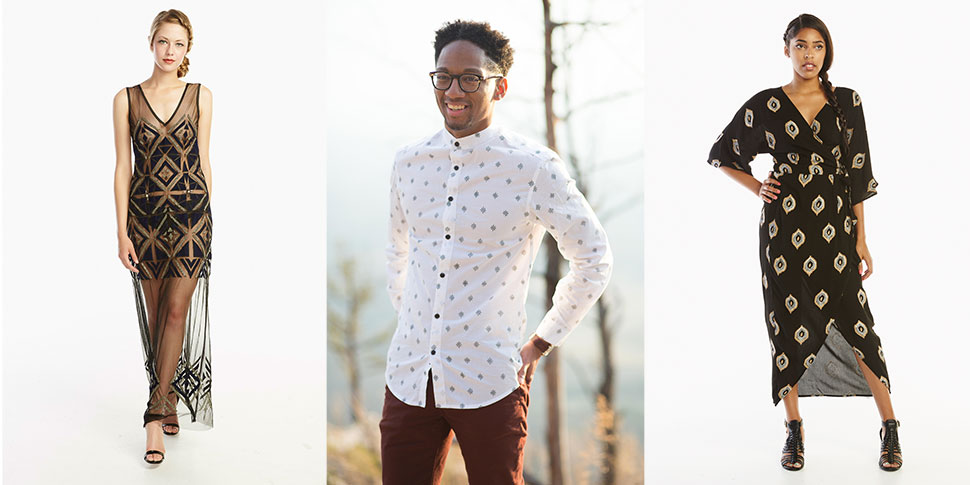
Pieces from Symbology Clothing’s Cosmos collection. [Photo submitted by Symbology Clothing]
For a daily dose of what’s new and next in Dallas-Fort Worth innovation, subscribe to our Dallas Innovates e-newsletter.

